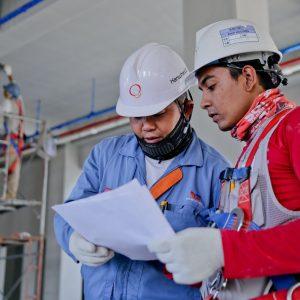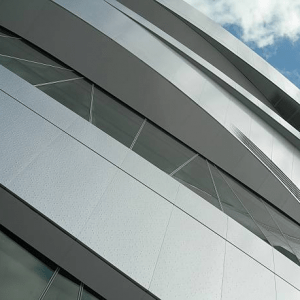Table of Contents
Building a new home or establishment is undoubtedly a thrilling journey. However, for contractors, it’s not just about laying bricks and crafting beautiful spaces; there’s also the pressing challenge of waste management. Managing construction debris efficiently is not only environmentally responsible but also economically beneficial.
So, what can you do as a contractor to handle this issue efficiently? This article explores hands-on strategies and solutions contractors can adopt to simplify the intricacies of waste management during construction.
So, let’s begin and learn how to simplify waste management in construction and contribute to a more sustainable future.
Segregation is Key
When building a new house, the construction site can become a chaotic mix of materials—wood, metal, concrete, and more. One effective way to manage this clutter is through segregation, the practice of separating waste materials by type. From the beginning, segregating waste materials into dedicated bins makes the entire process more efficient.
It allows for easier recycling and reduces the chance of materials going to landfills unnecessarily. You can also use clearly labeled bins to simplify this process.
Remember, segregation helps in proper disposal and contributes to a cleaner and more organized work environment. So, make segregation a priority for a well-managed construction site.
Rent a Dumpster for Bulk Waste
In any construction project, especially when building a new house, the volume of waste can quickly accumulate. One of the most straightforward solutions to this problem is to rent a dumpster.
A dumpster rental can serve as a centralized location for all the waste materials, making it easier to manage and eventually dispose of them. Dumpsters come in various sizes, so you can choose one that fits the scope of your project. Moreover, many dumpster service companies offer the option to segregate recyclable materials, enhancing your project’s environmental responsibility.
Hazardous Waste Disposal
Any construction project often generates hazardous waste like paints, solvents, and chemicals. Unlike general waste, these materials require special attention and can’t be thrown away casually.
So, it’s essential to identify these hazardous items and store them separately in labeled, leak-proof containers. Local regulations often mandate specific disposal methods for hazardous waste, so it’s crucial to be familiar with these rules. Many areas have specialized facilities for safely disposing of hazardous materials; some services will even pick up these wastes directly from your site.
Properly managing hazardous waste is a legal and ethical obligation to protect the environment and community.
Composting Green Waste
Building a new house involves not only bricks and mortar but also landscaping that can produce green waste like leaves, grass clippings, and small branches. Instead of dumping this biodegradable waste into a landfill, consider composting it.
Creating a compost pile is a simple yet effective way to recycle green waste. The compost can later be used to enrich soil, which is beneficial for the landscaping of the new house or even community gardens.
Composting removes green waste from the construction site and turns it into something valuable for future use. This eco-friendly method significantly reduces the overall waste footprint of your construction project.
Use Prefabricated Parts
Using prefabricated parts is an innovative approach to reducing waste while constructing a new home. These components come pre-cut and pre-measured, ready to be assembled on the construction site. This method dramatically minimizes the waste generated during the building process because there are fewer off-cuts and excess materials.
Prefabricated parts are made in a controlled environment, ensuring high quality and lessening the likelihood of errors that can lead to waste. Moreover, prefabrication speeds up the construction timeline, allowing for quicker project completion. By cutting down on manual labor and material waste, using prefabricated parts is an efficient, Eco-friendly choice for modern construction projects.
Educate Your Team
Ensure that all workers and contractors on your construction site are aware of waste management practices. Conduct training sessions to educate them about proper waste disposal, recycling, and reducing environmental impact.
Implement clear guidelines and procedures for waste handling on the construction site, emphasizing compliance with local regulations. Regular training sessions and reminders can help instill a waste-conscious mindset among your team members. By educating your team, you empower them to contribute to a cleaner and more sustainable construction process, reducing the environmental impact of your new house project.
Closing Lines
Managing waste during a new house construction project is essential for a successful, Eco-friendly, cost-effective build.
By following these strategies, you can ensure that your project meets your expectations and ranks high in environmental responsibility. Proper waste management benefits both your construction process and the world we live in.





